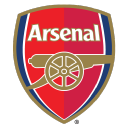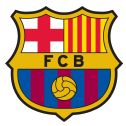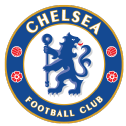
It seems as though he has been around forever, but Cesc Fabregas turned 30 years old on Thursday.
The midfielder has already enjoyed a career that most other players could only dream of having, and he still potentially has a few years left at the top.
Fabregas has represented Spain at senior level 110 times and won three major titles during his national team's most glorious era. He scored the winning penalties in shootouts at two separate European Championships -- helping Spain to glory in 2008 and 2012 -- and laying on the assist for Andres Iniesta's winner in the 2010 World Cup final.
But he has also left a mark at each of the three clubs he has played for. Here, ESPN FC's Arsenal, Barcelona and Chelsea correspondents look at how Fabregas has impacted their respective team.

ARSENAL: The memories of Cesc Fabregas in an Arsenal shirt will always be tinged with thoughts of "what if?"
In the post-"Invincibles" years, Fabregas was in many ways the personification of Arsene Wenger's new Arsenal: a technical magician signed on the cheap and raised from a young age to make the manager's vision of perfect football a reality.
He made waves when he started in the Gunners' win over Manchester United in the 2004 Charity Shield, and went on to register an incredible 70 assists during his seven seasons in the Premier League for the Londoners.
Had he stayed, perhaps that vision would actually have become real -- but his departure to Barcelona represented the end of those dreams. Instead he became the biggest symbol of Arsenal's inability to compete with Europe's true giants when it came to trophies and top talent.
Fabregas will be remembered as one of the most talented players ever to wear an Arsenal shirt, and was arguably the Premier League's best player during his final season at the Emirates. But it's the unfulfilled promise -- and those thoughts of "what if?" -- that will be remembered the most. -- Mattias Karen

BARCELONA: It began in 2010, with Pepe Reina forcing a Barcelona shirt on Fabregas after Spain had won the World Cup. The following summer, in 2011, Fabregas eventually left Arsenal to return to his boyhood club, only to leave three years later and with the Catalan club publishing a salty statement on their website.
"Despite glowing starts to each campaign, Cesc's contributions to the cause gradually decreased as each season drew to a close," Barca said. "From being someone who joined in with the attack, supplying and scoring goals, the magic tended to fade later on in each season."
That take from Barcelona is certainly harsh, but Fabregas' Camp Nou homecoming wasn't as successful as it was supposed to be. And he left through the back door, in stark contrast to the majority of La Masia graduates.
The Blaugrana had coveted the midfielder for a number of years and it was a case of when, not if he returned from Arsenal. And when he returned, he returned in style. As well as scoring three goals in his first four appearances, he won two titles in his first two games -- the Spanish and European Super Cups.
Yet the overwhelming feeling from his time back in Catalonia -- he'd left for Arsenal as a 16-year-old -- is that he could not quite find his place. With Xavi Hernandez, Andres Iniesta and Sergio Busquets, he struggled to find a place in midfield, often playing as a false No. 9. Despite that, he still managed an impressive tally of 42 goals in 151 games -- he was a regular under three different managers -- and left for Chelsea in 2014 having won six trophies. -- Sam Marsden

CHELSEA: Hailed by Jose Mourinho as a player who would add an "extra dimension" to Chelsea when he signed from Barcelona in the summer of 2014, Fabregas has provided the key creative contribution to what looks certain to be two Premier League title-winning teams in three years.
His vision and flawless passing transformed a largely reactive side into a thrillingly proactive one capable of dominating opponents and picking apart massed defences. He registered 18 Premier League assists in Chelsea's triumphant 2014-15 campaign, the best tally of his career.
Last season at Stamford Bridge was a disgrace for all involved, and Fabregas briefly found himself the target of fan anger following several reports -- repeatedly denied by the man himself -- that he was one of several players who worked to undermine Mourinho in his torrid final weeks.
But in the main Fabregas has proved a popular figure with Chelsea supporters, who regularly sing about his "magic hat" during matches. His Arsenal past has never been held against him at Stamford Bridge -- a memorable assist for Diego Costa in October 2014 and a goal last September against the Gunners have surely helped on that front.
The professional manner in which he has handled losing his starting spot to N'Golo Kante this season has further endeared him to fans.
Despite starting just 10 Premier League games this season he has nine assists, more than anyone else at Chelsea and seeing him surpass Stamford Bridge legend Frank Lampard in the all-time charts with 104, second only to Ryan Giggs. He is one of Antonio Conte's most impactful players and arguably the most effective substitute in English football. -- Liam Twomey